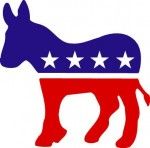What’s Left: A Little Too Extreme

Even though elections are more than a year away, it seems like they are right around the corner. No matter what you’re reading, all the political talk seems to be about Mr. Romney, Mr. Perry and Ms. Bachmann. It seems as though this spring will be all about who “out-crazies” whom. But in the past weeks, the silent contender in the corner of the room has been none other than Ron Paul: the oft-forgot Libertarian/Republican Congressman from Texas. Some groan at what they call another naïve outsider: the equivalent of Ralph Nader from the Green Party. But a small contingent of faithful Republicans, Libertarians and Tea Partiers are growing more and more excited after Ron Paul seemed cool and collected next to certified lunatic Herman Cain and Mr. Paul’s fellow Texan, Governor Rick Perry.
Mr. Paul is unyielding in his idea of limited government. Throughout the debate, Mr. Paul was critical of FEMA, the TSA and Governor Perry’s attempts to mandate HPV vaccinations to all girls entering the sixth grade. If you don’t know the issue: a pharmaceutical company makes a vaccine called Gardasil that prevents HPV, a virus that causes 70 percent of cervical cancers. Seemingly, this vaccine would be on the same level as Polio or Meningitis, a conclusion echoed by Mr. Perry’s executive order in 2007 that mandated vaccinations for all girls going into middle school. Mr. Paul introduced himself in the debate as a licensed physician (he stopped practicing in 1996) and continued to say that protecting young girls from a harmful sexually transmitted disease “is not good medicine.” I have such a massive problem with this statement. There’s an inherent difference between being staunch in political ideals and being a compassionate human being. It’s rare you’ll see me advocate anything coming from a Republican, but I think that Mr. Perry’s idea to mandate the vaccination against a dangerous disease is not just a smart decision but something that exemplifies what politics should truly be about: doing the right thing. Mr. Paul’s loud discord is an example of a jaded Republican not thinking about the people he represents, but just about “limited government.”
Ron Paul’s next bout of lunacy came when asked what to do with the TSA, an agency Mr. Paul claims should be abolished. According to Mr. Paul, “airlines are responsible for carrying their cargo and their passengers. Why should we assume that a bureaucracy could do better?” Mr. Paul, I’d love to remind you about Wall Street circa 2007, and then I’d love to hear your response as to how the limited role of government worked then. Mr. Paul adds that he is appalled by the actions of TSA agents. This is a prime example of playing politics: Mr. Paul highlights the purported sexual abuses by TSA agents on innocent passengers. If the TSA was to be replaced by private industry, Mr. Paul suggests, this mess wouldn’t occur. Mr. Paul, however, fails to mention that lesser checks at the airport are directly correlated to safety, not to the governing body that runs said tests. If the TSA was abolished and private industry ran less intrusive security checks (as Mr. Paul suggests), the skies would be more dangerous. I’d much rather have TSA agents look at my junk than allow another terrorist to board an airplane.
I finally boiled over when moderator Brian Williams prodded Mr. Paul about his comments regarding FEMA, the government agency that gives aid to those affected by emergencies, most notably natural disasters. Mr. Paul claimed, “FEMA conditioned people to build where they shouldn’t.” Mr. Paul, I’m sure that the residents of Newell Apartments, Binghamton and central Pennsylvania would love to have a talk with you. Ron Paul refuses to acknowledge the purpose of the federal government in this respect: people need assistance in order to continue living their lives after a disaster. When houses are being swept down rivers that are 26 feet above the previous record, when giant trees fall down on top of houses and when electricity is out for up to eight days in some major metropolitan areas, the government has to step in because we all know that big business in America will not, and does not. Still, the pièce de resistance: “FEMA is broke. They are $20 billion in debt.” Mr. Paul forgets that hurricanes, tornadoes, rainstorms, wildfires and other natural disasters don’t pay taxes. Maybe if we harnessed the power of wind, sun and water with greater government funding for alternative energy research (which Mr. Paul staunchly opposes), we could make back some of the $20 billion we’ve spent to help people in a state of emergency. But as long as Republicans like Ron Paul continue to be stubbornly against any sort of government action, we’ll be stuck underwater.
Contact Andrew Phillipson at [email protected].









